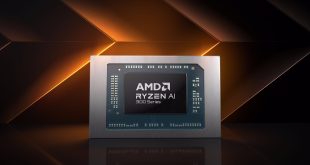Brian Krzanich, chief executive officer of Intel Corp., claims that despite of lack of any announcements concerning its contract semiconductor manufacturing business unit, the latter is growing and is still an important opportunity for the chip giant. Moreover, it has new customers that Intel just cannot name.
Intel established its Intel Custom Foundry (ICF) contract manufacturing division within its technology and manufacturing group in early 2010, but so far, IFC has not secured any tangible market share in the foundry market, according to analysts. Intel has been traditionally extremely tight-lipped about IFC’s ongoing endeavours, future plans, prospects and clients. In May, 2015, Sunit Rikhi, general manager of Intel Custom Foundry, retired and the replacement is yet to be named.
Since its foundation, Intel Custom Foundry has announced only six customers: Altera (now a division of Intel), Achronix Semiconductor, Tabula (defunct), Netronome, Microsemi and Panasonic. By contrast, leading foundries like Taiwan Semiconductor Manufacturing Co., GlobalFoundries and United Microelectronics Corp. have hundreds of customers. But while there are only six clients officially, there are a lot of companies, who work with IFC, according to Brian Krzanich.
“The foundry business continues to go well,” chief executive of Intel said in an interview with EETimes. “We have new customers. Altera is a customer. A lot of customers we are working with do not want to announce until they are ready to go to market because they have relationships with other foundries. They want to stay quiet. But we are out getting new customers all the time.”
Intel needs its contract semiconductor business to maximize utilization of its production facilities and offset increasing costs of research and development (R&D) of new manufacturing processes. Every new fabrication process costs more than the previous one and the cost of new fabs is growing as well. Today, R&D costs of one process technology total $1 – $1.5 billion, whereas capital investments in a new production facility typically exceed $6 billion. Future process technologies will get even more expensive and the cost of a 450mm semiconductor fabrication plant will be around $10 billion. In a bid to keep per-chip costs low, Intel and other makers of ICs [integrated circuits] need to maximize utilization of their fabs, which means that either Intel has to constantly increase its chip sales, or produce chips for others.
At present it is unknown how much money does Intel earn by making chips for other developers. It is also unclear whether the company produces any ICs for its clients using 14nm FinFET process technology.
Discuss on our Facebook page, HERE.
KitGuru Says: On the one hand, Intel has the finest process technologies in the industry as well as world-class services (such as testing and assembly). On the other hand, according to unofficial information, Intel charges more than GlobalFoundries, Samsung Foundry, TSMC and others, which can scare away a lot of potential customers. Moreover, since Intel’s manufacturing technologies are designed for Intel’s products in mind, at least some of its customers have experienced troubles with their designs after they had spent millions of dollars on design enablement. As a consequence, many fabless developers of semiconductors are simply not inclined to work with Intel Custom Foundry. Keeping in mind that the company delayed ramp of its 10nm fabrication process to 2017 earlier this year, it is likely that TSMC and Samsung Foundry will offer 10nm technologies and services earlier than IFC. In fact, considering the relationship of the two foundries with Apple, it is highly likely that the latter already has early process design kits (PDKs) for 10nm technology and is already working on 10nm chips due in the second half of 2017.
 KitGuru KitGuru.net – Tech News | Hardware News | Hardware Reviews | IOS | Mobile | Gaming | Graphics Cards
KitGuru KitGuru.net – Tech News | Hardware News | Hardware Reviews | IOS | Mobile | Gaming | Graphics Cards



the recently announced Altera fpga will be using Intel 14nm process
Which has Xilinx scared sh*tless.
❦❦❦❦❦❦❦❦❦❦❦❦❦❦❦❦❦❦❦❦❦❦❦❦❦❦❦❦❦❦❦❦❦❦❦❦❦❦❦❦❦❦❦❦❦❦❦❦❦❦❦my neighbor’s ex makes 60/hour on the web……last monday I got another McLaren F1 from getting 4948 this most recent 4 weeks and-in abundance of, ten/k last-munth . with no defenselessness it’s the most satisfying work Ive ever done . I began this 10-months back and expediently startad bringin in more than 76 for consistently . take a gander at this site…….
===LOOK AT THIS=== > tinyurl.com/Net22Money95Search ➽➽➽➽➽➽➽➽➽➽➽➽➽➽➽➽➽➽➽➽➽➽➽➽➽➽➽➽➽➽➽➽➽➽➽➽➽➽➽ ➽➽➽➽➽➽ tAke a look and find more info clicking any link
why?